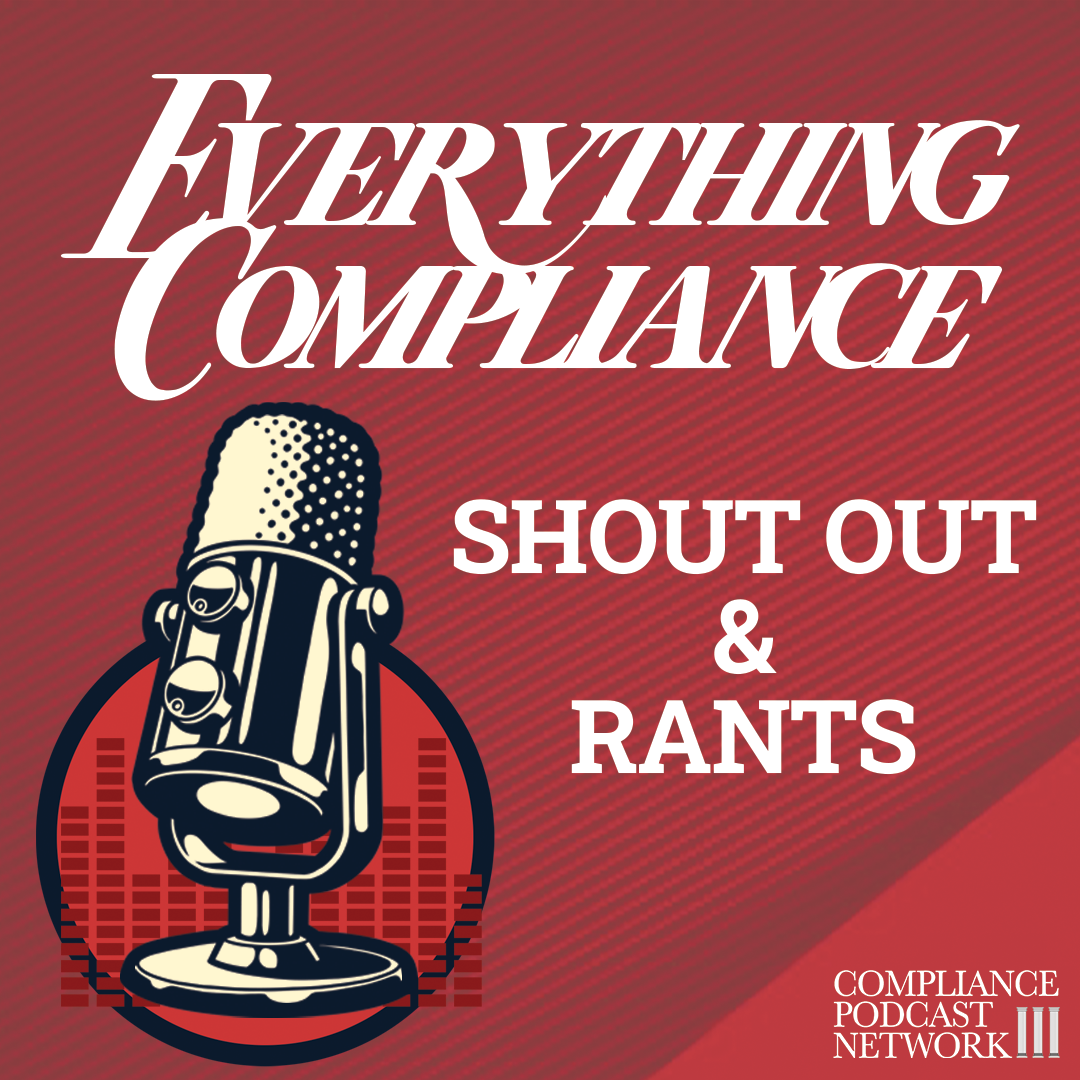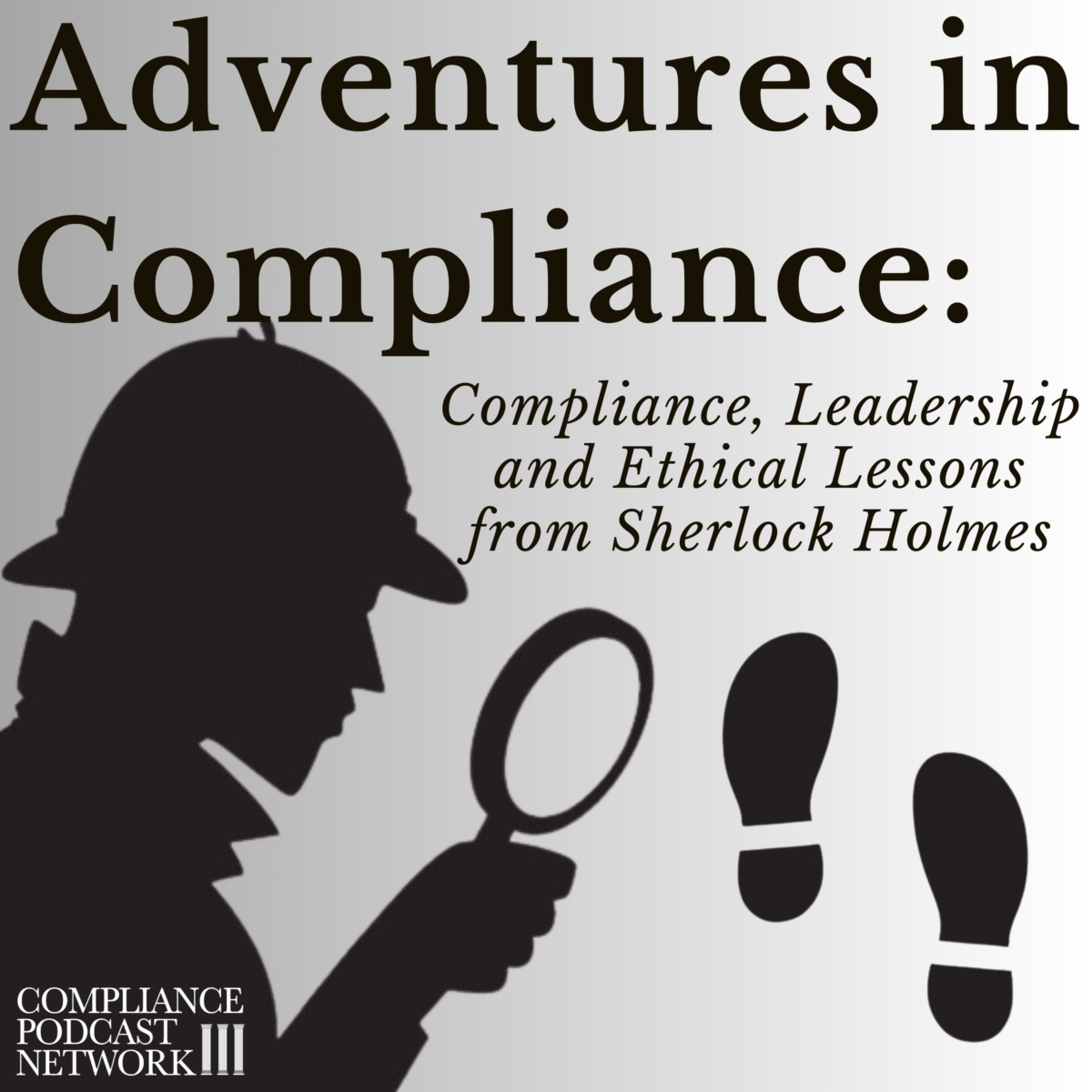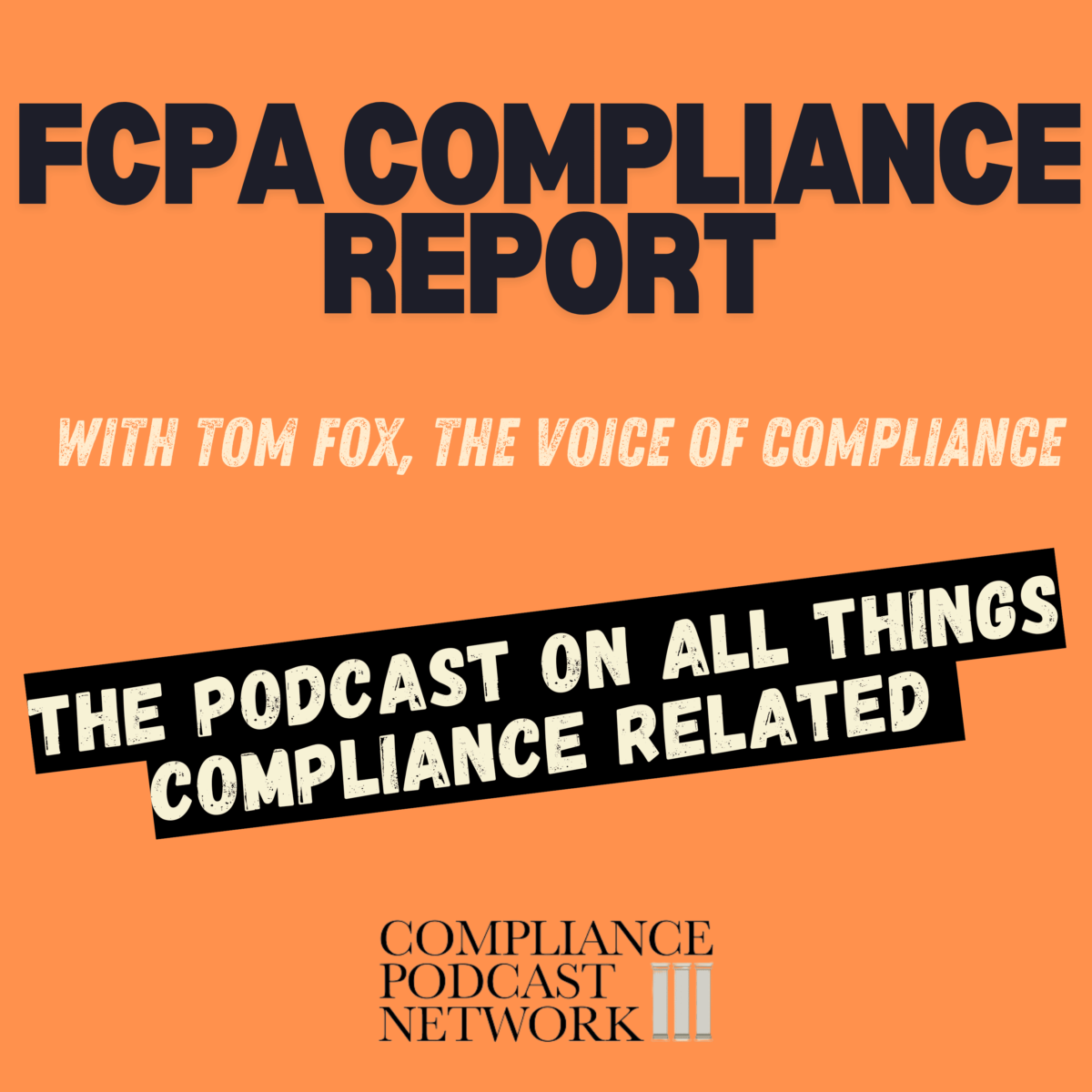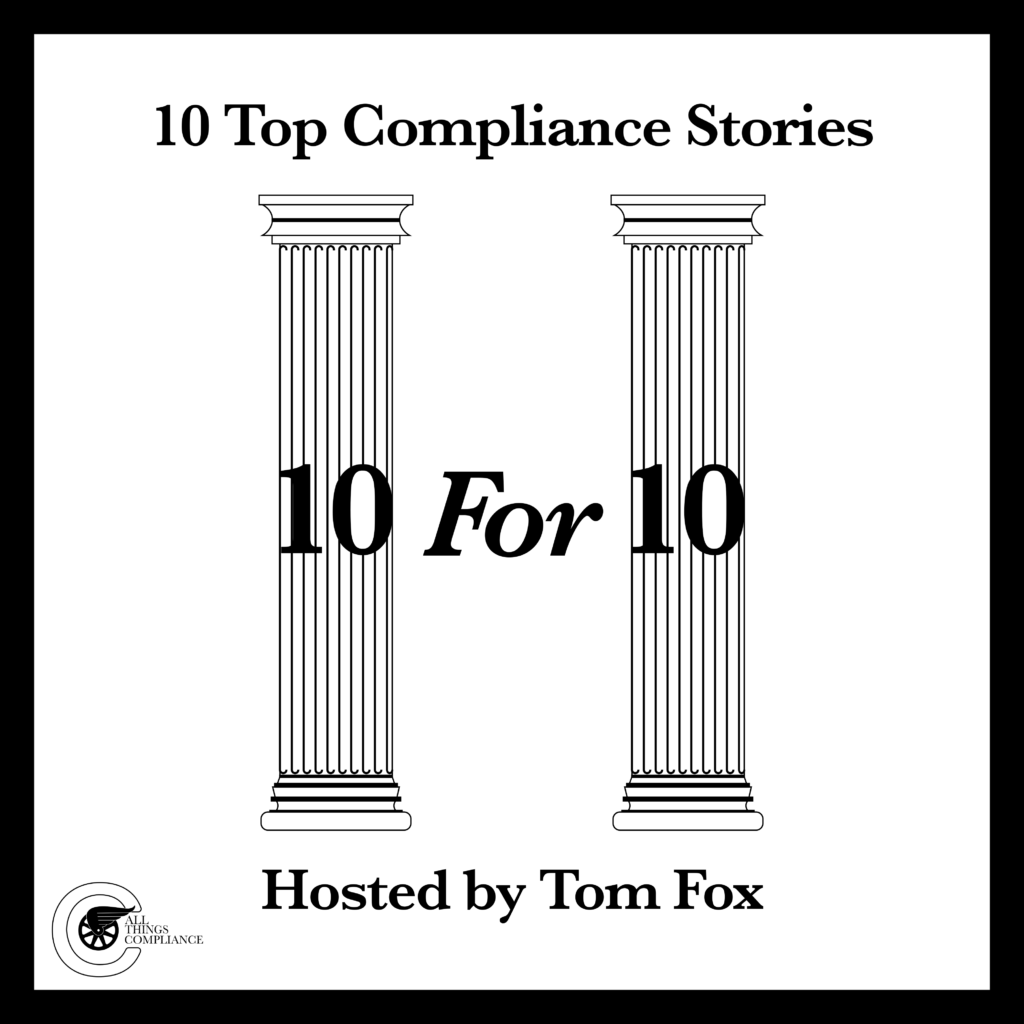We recently had a Foreign Corrupt Practices Act (FCPA) enforcement action that reminded me that everything old is new again in anti-corruption compliance. The Securities and Exchange Commission (SEC) FCPA enforcement action involving Deere has bribery schemes that were torn literally from the first decade of the 21st century as they involved gifts, travel, and entertainment. In other words, it was about a low set of hanging fruit that any compliance officer would see. Yesterday, I laid out the broad strokes of the Deere enforcement action. Today, I want to take a multipart look at the case and see what lessons the enforcement action can provide to the 2024 compliance professional.
As compliance professionals, we are all too familiar with the risks posed by bribery and corruption, especially in high-risk jurisdictions. The case involving Wirtgen Thailand’s bribery of government officials through direct cash payments and third-party agents is a stark reminder of how corrupt practices can infiltrate even well-established companies. Between 2018 and 2020, Wirtgen Thailand’s Managing Director and Finance Manager conspired to pay bribes to government officials in Thailand’s Department of Highways (DOH), Department of Rural Roads (DRR), and the Royal Thai Air Force (RTAF) to secure lucrative contracts, ultimately reaping illicit profits of $2.7 million.
This case offers valuable lessons for compliance professionals on the importance of monitoring, oversight, and due diligence—especially when dealing with third-party agents. In this blog post, I’ll summarize the key compliance lessons learned from the Wirtgen Thailand case and discuss actionable steps compliance officers can take to mitigate similar risks.
The Role of Leadership in Facilitating Bribery
One of the most glaring aspects of this case is the direct involvement of Wirtgen Thailand’s Managing Director. From instructing the Finance Manager to withdraw cash for bribes to coordinating payments with a third-party consultant, the Managing Director was a central figure in orchestrating the scheme. This demonstrates how misconduct at the leadership level can significantly increase the risk of non-compliance.
A key lesson for Compliance Professionals is that senior leadership buy-in is critical for an effective compliance program. When senior management is involved in unethical practices, it undermines the entire compliance framework. Compliance professionals must ensure that leaders are aware of the company’s anti-bribery policies and held accountable. This requires a top-down approach where ethics and compliance are ingrained in the corporate culture. Regular training for executives and a clear tone at the top are essential.
Cash Payments and Red Flags in Internal Communication
In this case, the Managing Director in Thailand explicitly instructed the Finance Manager to prepare envelopes filled with cash for government officials. The internal communication between the two, including text messages referencing “candy money” and specific instructions on how much to withdraw, left a clear paper trail of bribery.
The lesson for Compliance Professionals is that internal communications can provide early indicators of corrupt activities. Compliance officers should work closely with IT and HR departments to implement systems for monitoring suspicious communications, especially when they involve terms that could be euphemisms for illicit activities (e.g., “candy money”). It is also important to encourage employees to report any unusual communication patterns they observe through anonymous whistleblower channels.
Regular internal communications audits, especially in high-risk regions, can help detect bribery schemes early. Additionally, it is crucial to ensure that finance and accounting departments are well-trained on red flags, such as unusual cash withdrawals.
Third-Party Risks and Sham Commission Agreements
In this case, one of the most common methods of paying bribes was through a third-party consultant. Wirtgen Thailand signed sham commission agreements with a consultant who provided no legitimate services but acted as a conduit for bribes. These agreements facilitated payments of nearly $285,129 to government officials under the guise of commissions.
The lesson for Compliance Professionals in this area is that (once again) using third-party agents is one of the most significant risks in international business operations, particularly in jurisdictions where corruption is prevalent. Third-party consultants often act as intermediaries in bribery schemes, allowing companies to maintain plausible deniability. This makes third-party due diligence essential.
Compliance programs should include a thorough vetting process for third parties, including background checks, reputational risk assessments, and an analysis of the legitimacy of services provided. Red flags include vague service descriptions in contracts, unusually high commission fees, and the need for proper documentation.
But once again, appropriate vetting is not the end of the equation. It is crucial to establish ongoing monitoring of third-party relationships, including periodic reviews of commission payments and ensuring that the services provided match the fees being paid. This ongoing scrutiny can prevent third-party intermediaries from being used to facilitate bribery.
False Documentation and Fraudulent Reporting
Wirtgen Thailand’s Managing Director and Finance Manager created false documentation, including sham commission agreements and expense reports, to cover up their bribery scheme. They also submitted Applications for Approval of Commissions to other managers in Thailand to authorize these illicit payments.
Unfortunately, the lesson from Compliance Professionals is that fraudulent documentation is a common tactic used to conceal bribery and other forms of corruption. Compliance programs should include regular audits and reviews of documentation related to third-party payments, contracts, and expense reports. Any inconsistencies, missing information, or vague descriptions should be flagged for further investigation.
Furthermore, employees responsible for approving third-party payments or commissions should be trained to spot red flags and have clear guidelines on what constitutes a legitimate business expense versus a suspicious transaction. Compliance teams must also ensure that finance departments are fully integrated into the anti-bribery framework and are regularly monitored for compliance with anti-corruption policies.
Impact of Bribery on Business Outcomes
From 2018 to 2020, Wirtgen Thailand obtained $4.67 million in business from bribery, reaping illicit profits of approximately $2.7 million. While these figures may seem like a short-term business win, the long-term consequences—including legal penalties, reputational damage, and loss of shareholder trust—far outweigh any financial gains.
Compliance Professionals understand this final lesson but only sometimes articulate so the business folks understand the invidiousness of bribery and corruption. While bribery might provide a short-term competitive edge, the long-term damage to a company’s reputation and bottom line can be catastrophic. Compliance officers must work to foster a corporate culture that prioritizes ethical behavior over quick wins. This includes educating employees on the long-term risks of bribery, such as criminal penalties under anti-corruption laws, hefty fines, and the possibility of debarment from future government contracts. It is important to consistently communicate that ethical conduct is the right thing to do and the most sustainable business strategy.
The Wirtgen Thailand bribery case serves as a cautionary tale for compliance professionals. It underscores the importance of robust third-party due diligence, the need for strong leadership oversight, and the critical role that compliance programs play in preventing bribery and corruption. By learning from the failures in this case, compliance officers can better protect their companies from similar risks and reinforce a culture of integrity and ethical behavior across the organization.


















